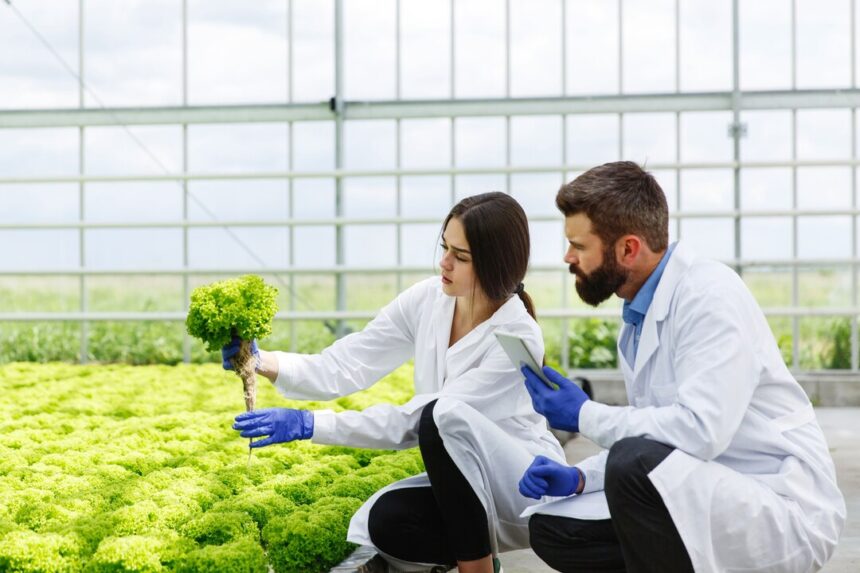Hydroponic farming is gaining popularity among South African farmers for its ability to produce high yields using less water and space. However, this soil-free farming method comes with its challenges, and even small mistakes can significantly affect crop health and productivity. Here are 10 common mistakes South African farmers make in hydroponic farming and tips to avoid them.
1. Neglecting Water Quality
Water quality is critical in hydroponics since plants absorb nutrients directly from the water. Using untreated water with high levels of impurities, chlorine, or imbalanced pH can harm plant growth. Regularly test water quality and use filters or reverse osmosis systems to remove impurities. Maintain a pH level between 5.5 and 6.5 for optimal nutrient absorption.
2. Using the Wrong Nutrient Solution
Not all crops require the same nutrient mix. A one-size-fits-all approach often leads to deficiencies or toxicities. South African farmers must tailor nutrient solutions to the specific needs of their crops. Additionally, failing to replenish or adjust the solution regularly can result in nutrient imbalances. Use high-quality, crop-specific nutrients and monitor electrical conductivity (EC) levels to ensure plants receive the right concentration.
3. Overcrowding Plants
In hydroponics, maximizing space often tempts farmers to plant crops too close together. Overcrowding limits airflow, reduces light penetration, and increases the risk of diseases. Follow spacing guidelines specific to each crop to ensure adequate air circulation and light access, which are crucial for healthy plant growth.
4. Poor Ventilation
Insufficient ventilation leads to high humidity levels, promoting fungal diseases and reducing oxygen availability for plants. Greenhouses or hydroponic setups in South Africa’s warm climates require proper airflow. Use fans, vents, and exhaust systems to maintain optimal humidity and temperature levels, ensuring a balanced growing environment.
5. Overlooking Temperature Control
Temperature fluctuations can stress plants and affect their growth. South Africa’s varied climate requires consistent temperature management in hydroponic systems. Install temperature monitors and heating or cooling systems to keep temperatures within the ideal range for your crops.
6. Ignoring Light Requirements
Light is essential for photosynthesis, yet many farmers underestimate its importance in hydroponics. While South Africa’s sunlight is abundant, indoor hydroponic systems may require supplemental lighting, especially during winter. Use LED grow lights to provide plants with the full spectrum of light they need to thrive.
7. Failing to Monitor the System Regularly
Hydroponic systems require constant monitoring to prevent issues like pump failures, leaks, or nutrient imbalances. Neglecting system maintenance can lead to crop loss. Set up automated monitoring systems to track water flow, nutrient levels, and environmental conditions. Regularly inspect equipment to identify and address potential problems early.
8. Overwatering or Underwatering
Although hydroponics uses water efficiently, overwatering or underwatering can still occur. Overwatering can lead to oxygen deficiency, while underwatering can cause nutrient shortages. Use timers and sensors to control water delivery and ensure plants receive the right amount of water without waste.
9. Skipping Pest and Disease Management
While hydroponic systems are less susceptible to soil-borne pests and diseases, they are not immune. Poor hygiene, unfiltered water, or introducing infected plants can lead to infestations. Implement strict biosecurity measures, including sterilizing equipment, using pest-resistant netting, and inspecting plants regularly for signs of pests or disease.
10. Lack of Knowledge and Training
Hydroponics is a highly technical farming method that requires a deep understanding of plant biology, system management, and environmental controls. Entering this field without adequate training often leads to costly mistakes. South African farmers should attend workshops, enroll in online courses, or consult hydroponics experts to gain the necessary knowledge and skills.
Hydroponic farming presents immense opportunities for South African farmers to grow crops efficiently while conserving resources. However, its success depends on avoiding common mistakes that can compromise crop health and yields. By addressing water quality, nutrient management, spacing, and system maintenance, farmers can optimize their hydroponic setups and reap the benefits of this innovative farming method. With proper knowledge, attention to detail, and investment in the right tools, hydroponics can become a sustainable and profitable venture for South African farmers.
Join 'Farmers Mag' WhatsApp Channel
Get the latest Farming news and tips delivered straight to your WhatsApp
CLICK HERE TO JOIN






